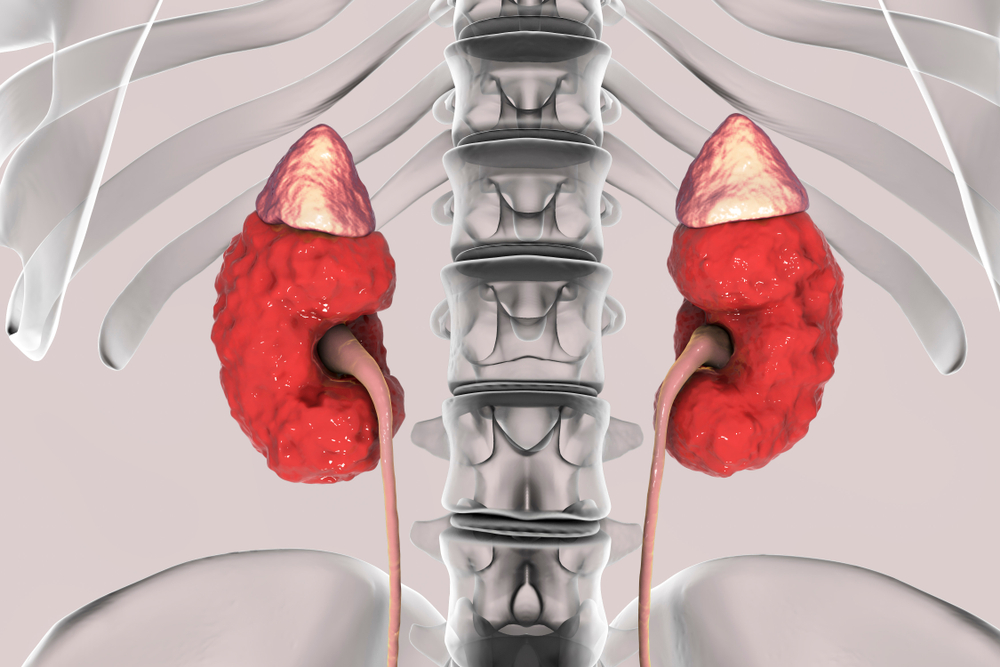
Creatinine is a waste product that is found in your blood. Almost all of it is filtered from your blood by your kidneys and passed into your urine to be removed. Measuring creatinine is a good way to find out if your kidneys are working properly and is usually ordered along with other tests for checking kidney function. It is also used to monitor treatment for kidney disease.
What is being tested?
This test measures the amount of creatinine in your blood and/or urine. Creatinine is produced in your muscles when a compound called creatine spontaneously breaks down. Creatine is used in a process in body cells to produce the energy needed to contract muscles and it produces creatinine at a fairly constant rate. Almost all creatinine is excreted by the kidneys and released into the urine, blood levels are a good measure of how well your kidneys are working. The quantity produced depends upon the sex, size or age of the person and their muscle mass. For this reason, creatinine concentrations will be slightly higher in men than in women and children.
How is it used?
It is used to determine whether your kidneys are functioning normally. A calculation based on the serum creatinine concentration, called the eGFR (estimate of glomerular filtration rate) measures how effectively your kidneys are filtering small molecules like creatinine out of your blood.
Urine creatinine may also be used with a variety of other urine tests as a correction factor. Since it is produced and removed at a relatively constant rate, the amount of creatinine in urine can be compared to the amount of another substance being measured. Examples of this are when creatinine is measured with protein to calculate a urine protein/creatinine ratio (UP/CR) and when it is measured with albumin to calculate microalbumin/creatinine ratio (also known as urine albumin/creatinine ratio, UACR). These tests are used to evaluate kidney function as well as to detect other urinary tract disorders.
When is it requested?
Creatinine may be part of a routine blood test, widely used when someone has non-specific health complaints, or when your doctor suspects kidney problems. Creatinine and the eGFR are also used to monitor treatment of kidney disease or to monitor kidney function while you are on certain drugs.
What does the result mean?
Increased creatinine levels in the blood suggest diseases that affect kidney function. These can include:
Creatinine can also increase as a result of muscle injury. Reduced levels of creatinine are not common and are not usually a cause for concern. As creatinine levels are related to the amount of muscle the person has, low levels may be a consequence of decreased muscle mass (such as in the elderly), but may also be occasionally found in advanced liver disease.
Is there anything else I should know?
Since creatinine levels are in proportion to muscle mass, women tend to have lower levels than men.
In general, creatinine levels will stay the same if you eat a normal diet. However, eating large amounts of meat may cause short-lived increases in blood creatinine levels. Taking creatine supplements may also increase creatinine.
There are a few drugs that interfere with the creatinine test, although there are some drugs that can cause some impairment in kidney function. Your creatinine levels may be monitored if you are taking one of these drugs.
Common questions
In general, moderate exercise will not affect your creatinine levels. As you continue to exercise and build muscle mass, your creatinine levels may increase slightly, but not to abnormal levels.
In general, creatinine levels will not vary with a normal diet. Creatinine levels may be 10%-30% higher in people who eat a diet that is very high in meat.
Creatine is a compound that is made primarily in the liver and then transported to your muscles where it is used as an energy source for muscle activity. Once in the muscle, some of the creatine is spontaneously converted to creatinine. The amount of both creatine and creatinine depend on muscle mass, so men usually have higher levels than women. Creatine is now available as a dietary supplement. If you take creatine, your creatinine levels may be higher than when you do not take the supplement. You should tell your doctor of all the dietary supplements you are taking to help him/her evaluate your lab results.
Creatinine levels relate to both muscle mass and to kidney function. As you age, your muscle mass decreases but your kidneys tend to function less effectively. The net result is not much change in creatinine levels in the blood as you get older.
Creatinine and urea, together with the eGFR, are the primary tests used to check how well the kidneys filter waste products from your blood. Your doctor may also order electrolyte tests such as sodium and potassium, or calcium to help understand how your kidneys are functioning.
Creatinine levels are generally slightly lower in pregnancy.
What is Pathology Tests Explained?
Pathology Tests Explained (PTEx) is a not-for profit group managed by a consortium of Australasian medical and scientific organisations.
With up-to-date, evidence-based information about pathology tests it is a leading trusted source for consumers.
Information is prepared and reviewed by practising pathologists and scientists and is entirely free of any commercial influence.